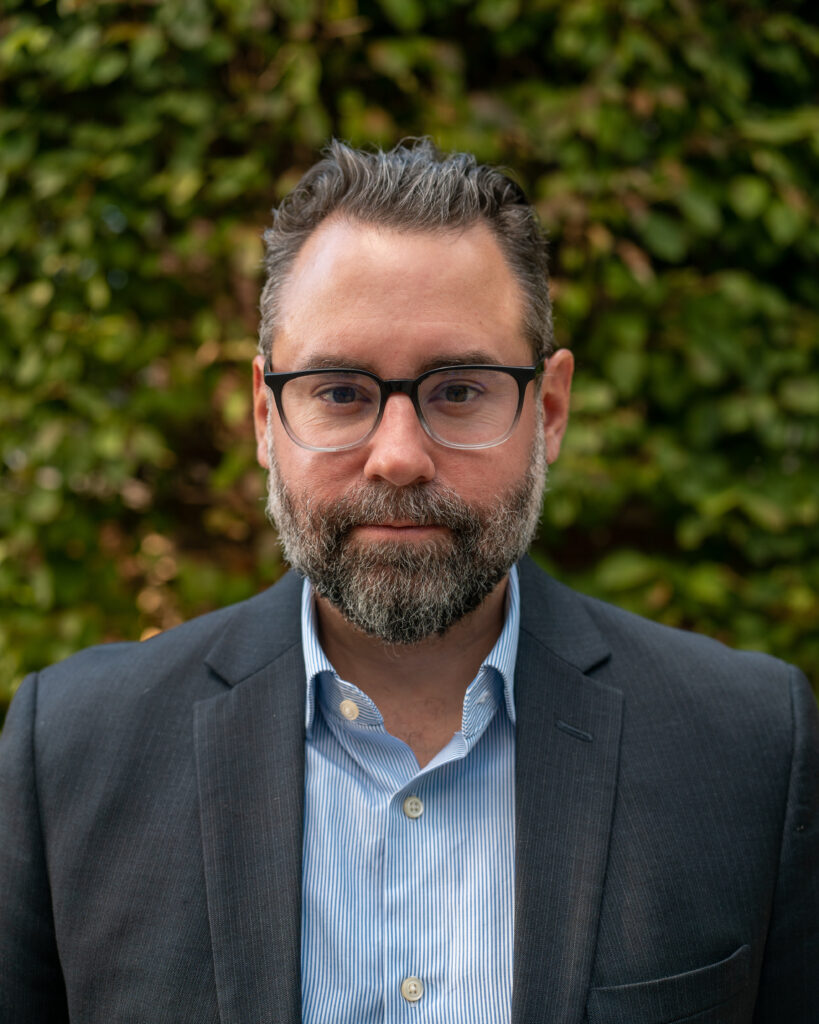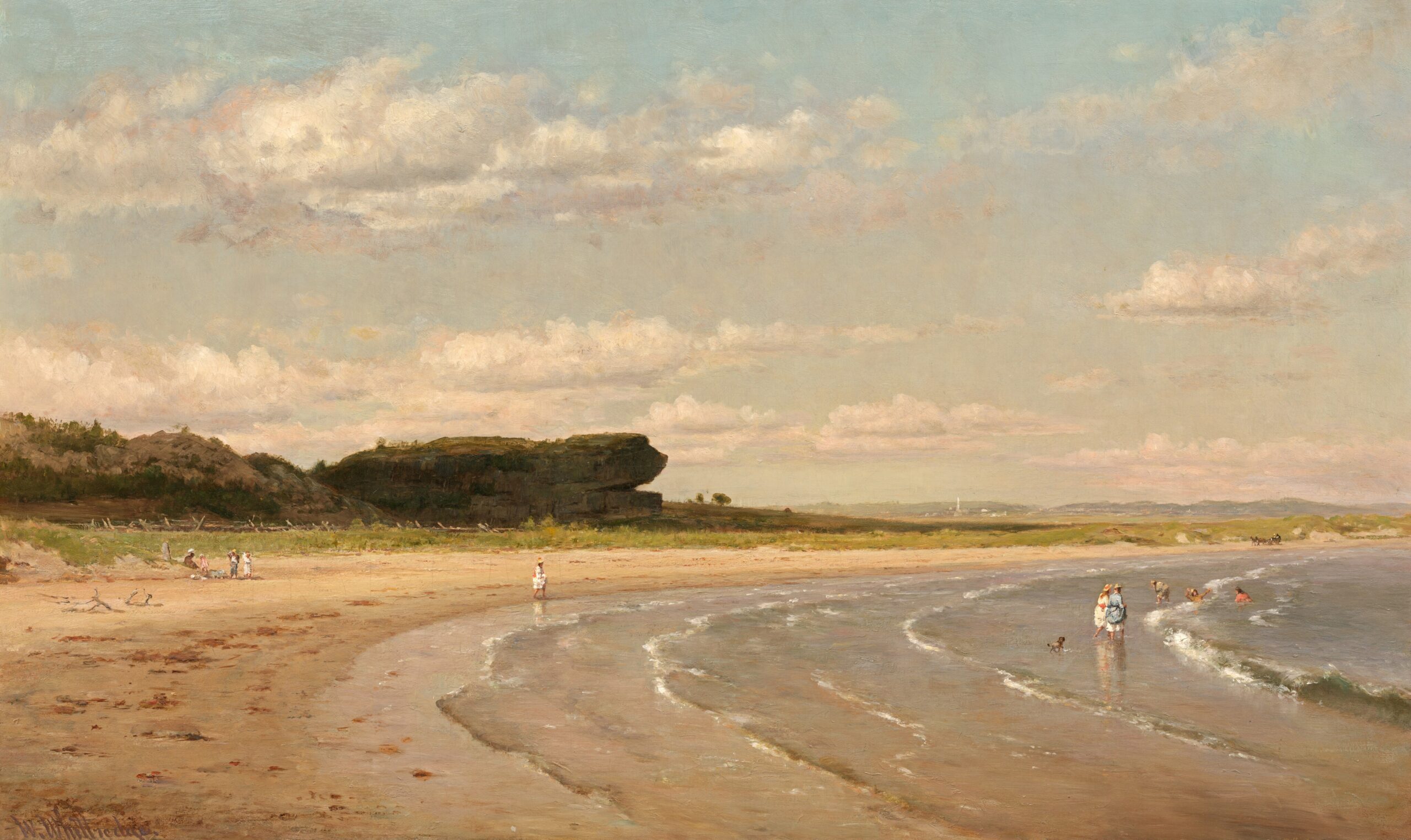A vacation home in Rhode Island
The lot looked empty at the Ocean Mist.
“Let’s stop for one,” she said. They found a booth.
As condensation dribbled down his beer,
he touched her hand: “This morning, at Black Point,
I thought I heard the ocean calling me.”
“By name?” she laughed. The waiter brought the bill.
Outside, she took the keys—she was insistent.
The whole drive home she shuffled an old playlist.
In bed, he heard the tide-wash hissing through
the window screen, its hushing sibilance
where breakers smashed the rocks off Scarborough.
He thought of seagulls listing, cormorants
plunging below the waves to reappear
so far away it seemed impossible.
*
So far, a way out seemed impossible:
yellow jackets writhing on a web
between the downspout and the peeling sill—
they looked arranged, bright trinkets on a wire
a girl had threaded through each abdomen
and wore around her neck, not knowing better.
People did it, though, escaped their lives:
signed up for Match.com and moved to Maine
to see the wilderness before they died.
Cicadas rasped like sprinklers on a lawn.
His arborvitaes trembled in the wind.
The wasps had quit their struggle, all but one.
With its head and wings torn off, its stinger stabbed.
Next day, they closed the cottage for the year.
*
The day they closed the cottage for the year,
I-95 was choked with northbound traffic.
She guessed construction. Then they saw the wreck.
A cop directed them along the shoulder
where car-seat fabric clumped in goldenrod,
gnarled metal, cardboard boxes, a woman’s purse.
A FedEx truck upended on the road.
A hatchback crumpled like a wad of foil.
No smoke, but he smelled burning motor oil.
“Can you explain to me,” he said, “why people
slow down to stare at pileups? It’s perverse.”
She said to watch for glass spilled on the tarmac.
He heard it crunch and pop under their tires—
it sounded crisp, like teeth biting an apple.
*
The Sound’s crisp air—it reeked of rotting apples
when he drove back to fix the outdoor shower.
Not low-tide odor, something vegetal,
a foul sweetness poisoning the air.
He blamed the treatment plant, fired off an email
to the clerk at Narragansett Wastewater.
But the stench of rot—rank cider, moldy peels—
flooded the cottages, beaches, and bars.
The news reported tidal algae blooms
had drifted from Block Island down the coast,
discoloring the shoreline for a week.
At home, he asked his wife to sniff his clothes.
“See?” he said, “I can’t wash off this reek.”
She shrugged: “I don’t smell anything. Just you.”
*
Her shrug, her Don’t, her Nothing, only you . . .
He couldn’t sleep. Downstairs, he cracked a door
and felt November wind sting his bare skin.
He heard a barred owl call behind the house—
another—barking cackles long and low.
What did she say they said? “Who cooks for you”?
He poured a drink and bit a cube in half.
He thought about the bones of some caught mouse
crushed like flake-ice shards in a barred owl’s beak.
Or do they gulp their prey? The moon’s dull glow
tinged his neighbor’s lawn a moldy blue
where shaggy asters shattered on the stem.
When was the last time he heard her laugh?
The owls bitched through the night—he drank to them.
*
“Our owls were out last night,” he said, “You missed them.”
She grabbed her keys, her phone: “Is that the time?”
He watched her Mazda back out of the drive
and hang a right down Quinapoxet Ave.
Then he woke up her work laptop to see
who she’d been chatting with, her history.
YouTube and Amazon. Facebook and Twitter.
He searched her contacts for the man she’d met
last year in Boston. Nothing. Damp with sweat,
he set the laptop on the kitchen counter
and let the screen go dark. He texted her:
The guys are fishing. Last run of the year.
Feeling his phone vibrate against his thigh,
he knew her text before he read it: Bye.
*
She’d know all his texts, too, before she read them—
what could he say she hadn’t heard before?
He smelled salt air a half-mile down Route 4
and drove south toward Point Judith Light to feel
the weather, wet and gray, envelop him.
He parked, and walked the jetty in gaunt fog—
he slipped on bearded slabs but never fell.
He listened to the tide repeat its fugue
in contrapuntal, surging, sloshing sounds.
As big waves slapped against a nearby pier,
he realized he was soaked—he didn’t care.
Turning back, he couldn’t see his car.
The sun, an oculus, loomed through thick clouds.
He waited for the world to reappear.
*
He’d waited long enough to disappear.
Back at the cottage, he eyed the vacant den
the way, after a hurricane blows through
a neighborhood—taking homes and trees—
he could still see it as it was before.
He locked up one last time and dropped his key
where he knew she would find it when she knew
she wouldn’t have to see him anymore.
Gripping the steering wheel tight in his fist,
he took 1A, not knowing where he’d go,
and drove by Sand Hill Cove, their favorite view.
The tide—what he could glimpse of it—rolled in,
contracting in broad swells off Galilee.
The shore looked empty cloaked in ocean mist.

Brian Brodeur is the author of four poetry books, most recently Some Problems with Autobiography (2023), which won the 2022 New Criterion Poetry Prize. Recent poems and literary criticism appear in The Hopkins Review, Image, The Los Angeles Review of Books, and The Pushcart Prize XLIX: The Best of the Small Presses (2025). He lives with his wife and daughter in the Whitewater River Valley.
Featured Image: Second Beach, Newport, c. 1878/1880 by Worthington Whittredge.



